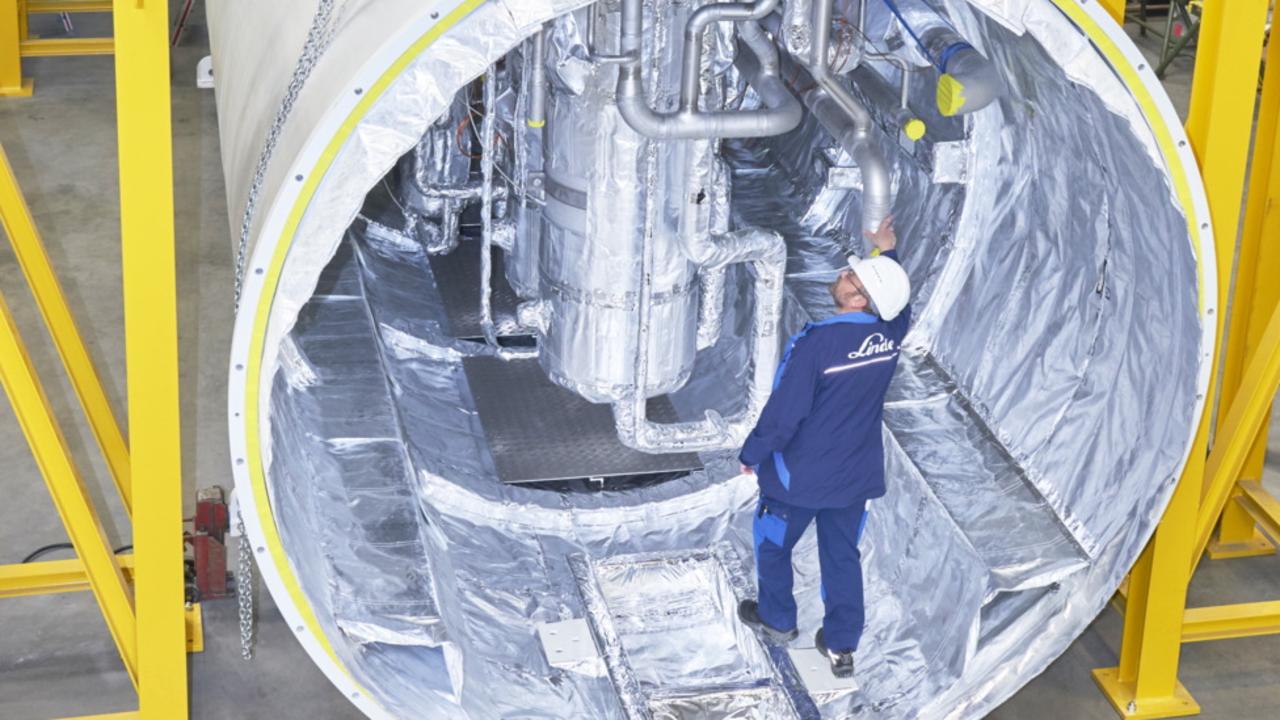Capital flows: Lendlease flags funds plays to expand $31bn empire
The famed building company is turning funds manager as it searches for the next leg of growth amid tough times for traditional offices and malls.
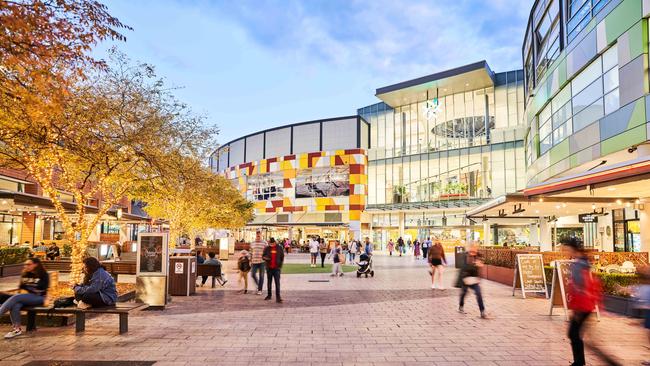
Business
Don't miss out on the headlines from Business. Followed categories will be added to My News.
Property company Lendlease’s ambitions of making the big shift into becoming a fund management-focused operation will hinge on the ability of its local operations to forge into new sectors and boost its traditional holdings.
The ending of a tie-up with tech giant Google to develop $US15bn ($23.3bn) worth of projects in the San Francisco Bay Area and the reset of Europe’s property markets has put the focus back on the developer’s home market.
Lendlease wants to leave its roots as a builder behind as that industry is crunched by soaring costs and low profitability, and is banking on its integrated business to draw investors into backing prime projects.
But the shift is coming at a time when raising equity is perhaps the toughest since the global financial crisis and large pension funds have turned away from traditional malls and offices.
But the company believes that its local operations can drive the next leg of its growth, even as it deals with negative sentiment and the restructure of its strategy.
The listed company, which has a $31bn local funds business, is building up in new areas ranging from build-to-rent units, next generation office buildings, to still active industrial space. It is looking for a partner to back the expansion of its build-to-rent pipeline, and is also preparing capital raisings in the more traditional areas of shopping centres and office skyscrapers.
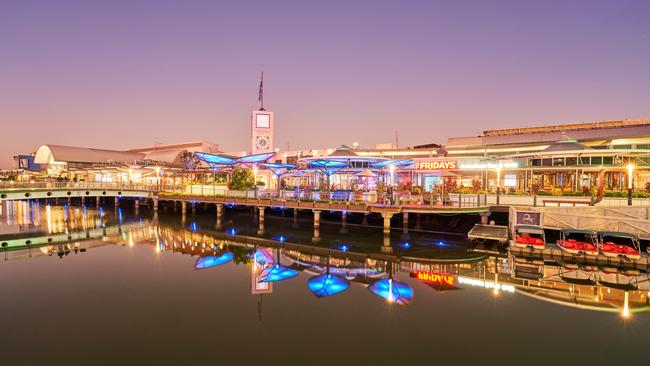
The company is moving in the shadow of hefty redemptions that have hit its flagship retail property fund and the offices being hit by the global shift against the sector.
But it is hopeful that redemptions will soon be dealt with, and it can garner investors to ride the next leg of the real estate cycle.
Managing director of Lendlease’s Australian investment management division, Vanessa Orth, says the company is moving to a model of bringing in partners at the start of projects as it aims for $8bn of annual production.
“We’re really leaning into the development pipeline earlier in the piece,” she said.
“Over the last 12 months, the development and investment team are aligned on when we need to go and talk to capital.”
Lendlease faces a steep task of shifting from its building roots and better integrating its development and investment in the face of share market heat.
“The priority for the investment management business going forward is our performance,” Ms Orth said.
Another focus is on the trust and relationships with the 70 odd investors in its local portfolio.
On the build-to-rent front, where it already has a series of projects along the east coast, it is in the market for a “programmatic” venture to match capital to its pipeline.
While the company lagged some entrants to the sector locally, it has deep experience in Britain and the US and is looking to apply the best models in Australia.
Other new moves are on the agenda.
Ms Orth said that many managers are looking at “brown to green” offices but insists the company won’t rush. It is looking at a value-add style product that could launch in mid-2024.
“We’ve identified where we think the opportunities are,” she said.
Expanding in logistics is also on the agenda and the company is building up its in-house capability, and would see the company’s flagship fund industrial grow.
Any moves will be “capital light” with the focus on the expertise that it can bring.
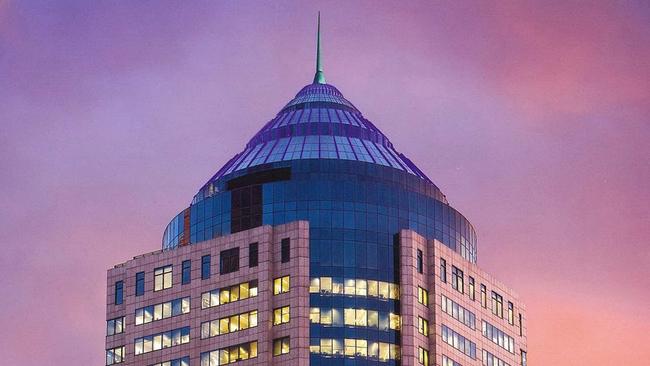
The ambitions come in the face of real estate fundraising all but drying up in traditional areas. Ms Orth said there has d been a shift to value-add opportunistic style investment, but senses that traditional areas will also return.
“It feels like the market’s starting to warm up again,” Ms Orth said.
The famed APPF Retail fund has been in a long reset phase.
The pressure of major redemptions saw it sell off assets and its Cairns Central is still in play with a new party in due diligence.
Ms Orth said the company was now focused on a prime urban growth centre strategy, which is capitalising on about 40ha of real estate around the five remaining centres that amount to a $2bn mixed use pipeline over a decade.
“We’ve now got master plans and development plans on how we build that out,” she said.
Key assets include interests in Sunshine Plaza on Queensland’s Sunshine Coast, Macarthur Square in Sydney’s south-west and two properties which are in play. It co-owns the Lakeside Joondalup Shopping Centre alongside the Future Fund, which is again looking to sell off its half stake in the $900m Perth retail complex.
It also co-owns the Erina Fair shopping centre in NSW, where South Korea’s National Pension Service is seeking to sell its interest for more than $400m. Both are billed as not only just large scale regional malls but also have the mixed-use potential, which Lendlease has worked up.
It also owns Brisbane’s Westfield Carindale, with the Scentre Group-managed Carindale Property Trust, and considered selling its stake before pulling these plans during the pandemic.
It is a tough environment in which to make big moves. Credit ratings agency S&P Global last December downgraded the fund, partly over it selling assets to satisfy unit holder redemptions rather than cutting debt.
Whatever happens with the sales processes, Ms Orth argues that the mall sector has been reset and rents have been rebased, with strong sales growth now coming through, boosting retail margins.
“You’ve got these tailwinds in retail that are looking quite good,” she said.
Lendlease will develop some properties and sell off unwanted parcels to smaller developers, with the outlays modest and a focus on returns from its integrated business.
“We’ve got a team of capable residential developers,” she said.
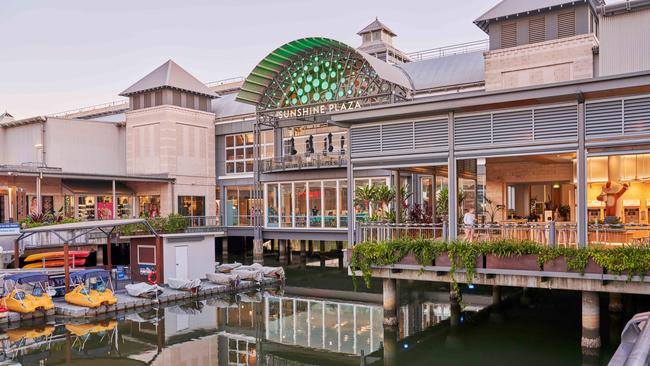
After overcoming the “distraction” of redemptions, the firm had a good reception in “soft soundings” taken in Asia.
“I think the fund is well-positioned to grow and evolve beyond retail,” Ms Orth said.
The flagship APPF office fund has taken slices of major Lendlease towers, including Sydney Place and the forthcoming Victoria Cross in North Sydney.
Big office projects are at a crossroads as corporations are cutting space and are slow to commit to new towers.
But Ms Orth is optimistic. “I think what investors are seeing is that, in the Asia Pacific, the return to work has been a lot faster than elsewhere,” she said.
A capital raising is planned early in the new year to back the development pipeline. This will include both a new precinct on a block it controls on Sydney’s O’Connell St and a revamp of its LaTrobe St holdings in Melbourne.
Ms Orth said that while the office reset was still playing out, the fund would go out in 2024 as a lowly geared vehicle that can ride out the cycle.
“We need to raise capital because we want to deliver on a couple of the development opportunities in the funds,” she said.
The company still believes that traditional sectors that may also throw up opportunities.
“We’ve got a production line where we are scanning where we think ‘this is what investors want to invest in’,” she said. “So now, let’s build it.
And let’s get the investors at the very start.”
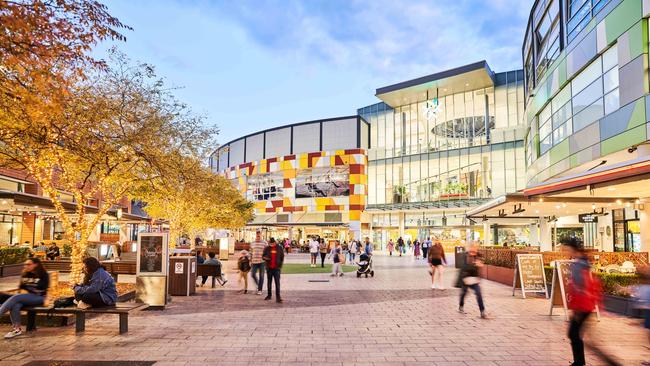
Getting it right will be tough. Lendlease is facing its annual meeting on Friday, with activist investors HMC Captial, Allan Gray and Tanarra Capital pressing for a more rapid turnaround.
HMC has called a radical reset at the company and is looking for progress in non-core asset sales to release value in the company so that it can stand alongside rival property funds houses.
With industry players saying that talks with Stockland about buying Lendlease’s housing business are progressing, the heat is on the company to now deliver.
More Coverage
Originally published as Capital flows: Lendlease flags funds plays to expand $31bn empire




